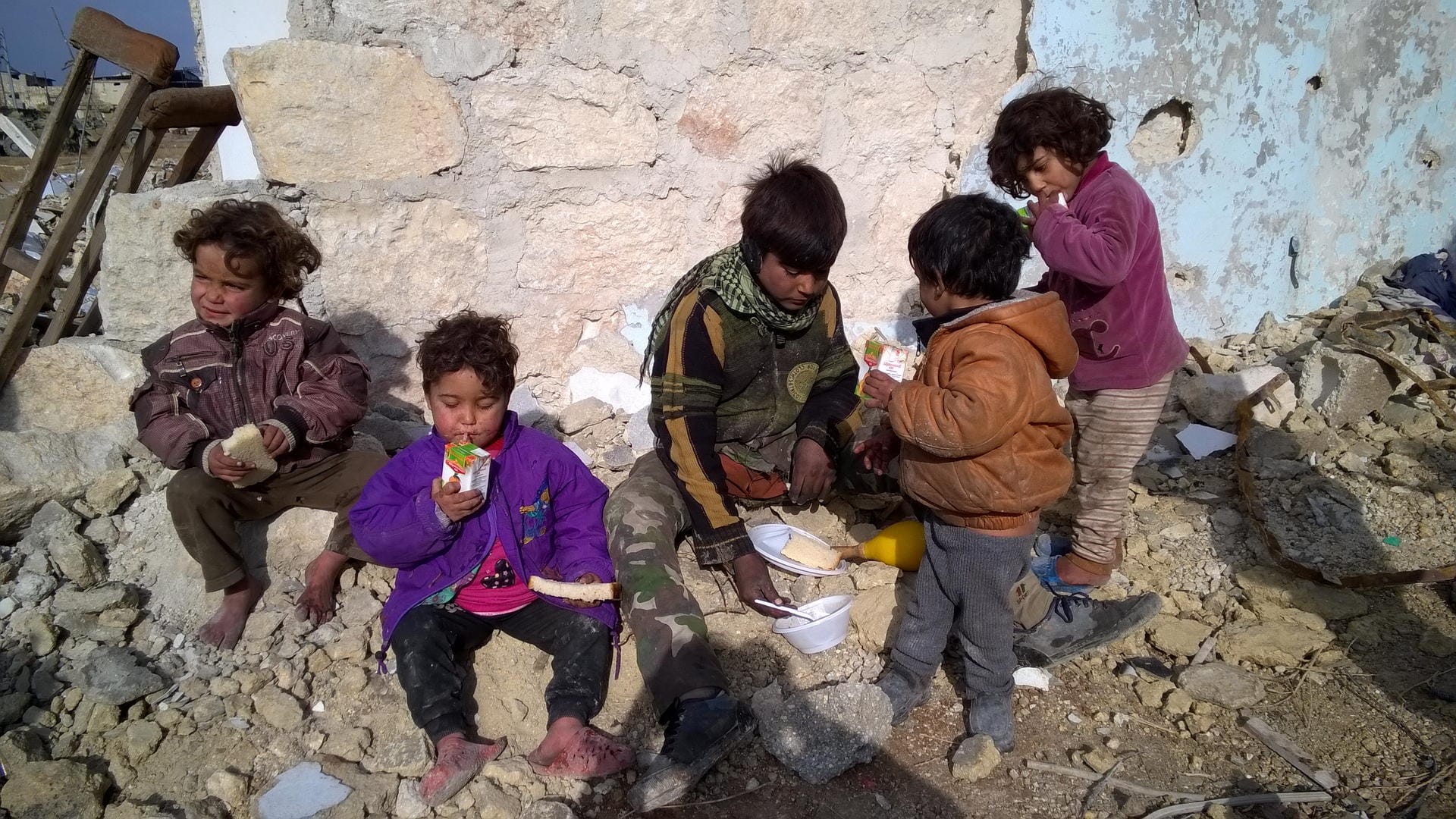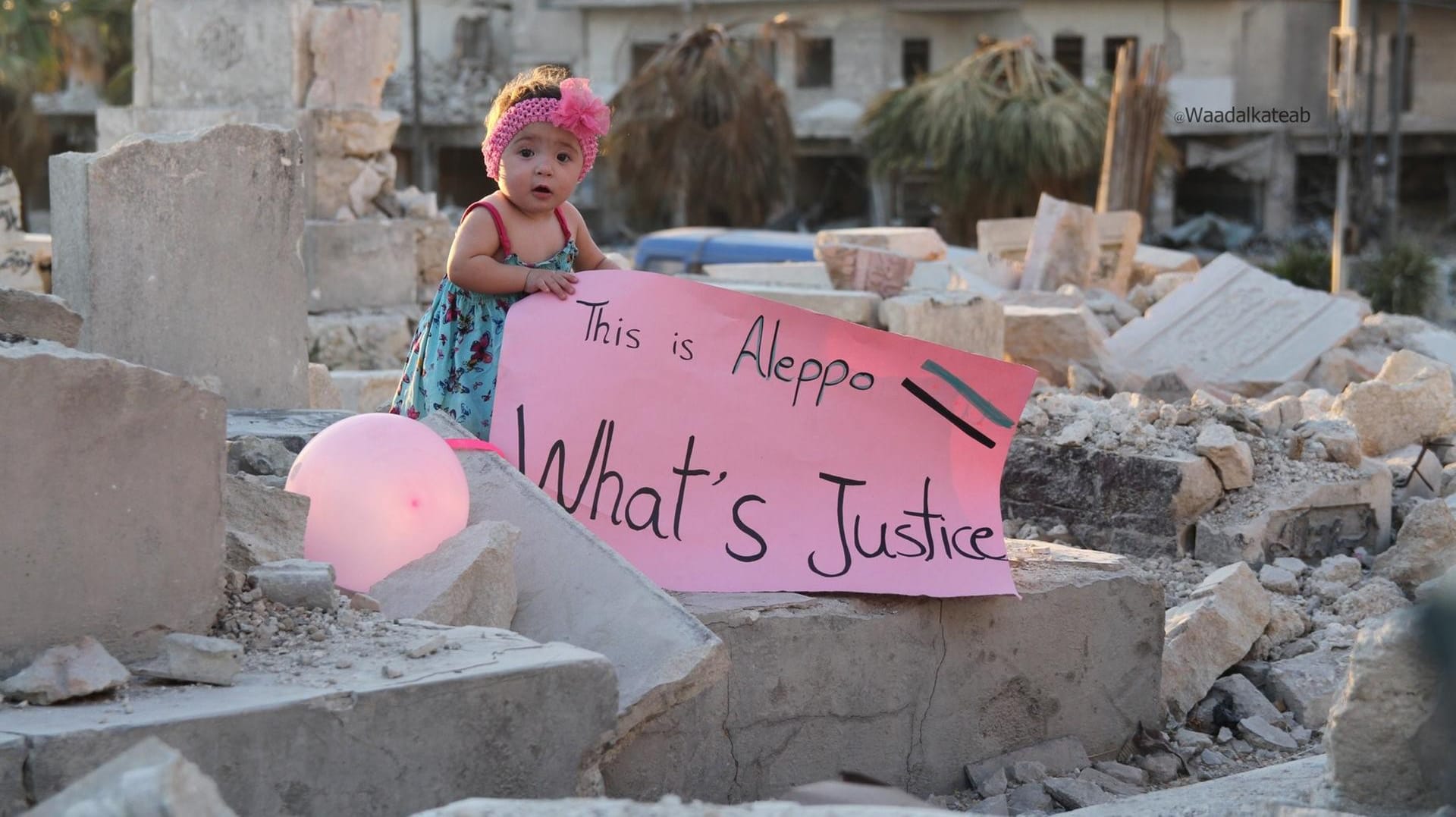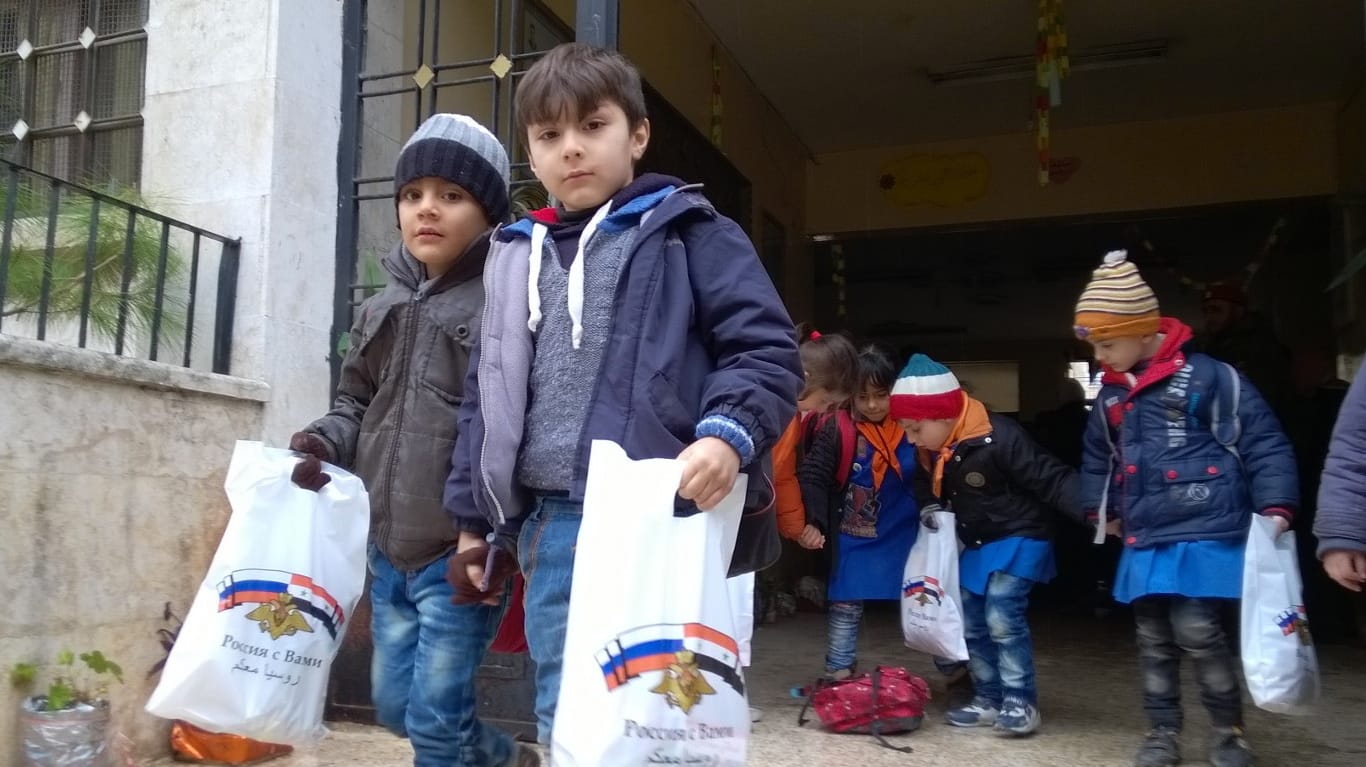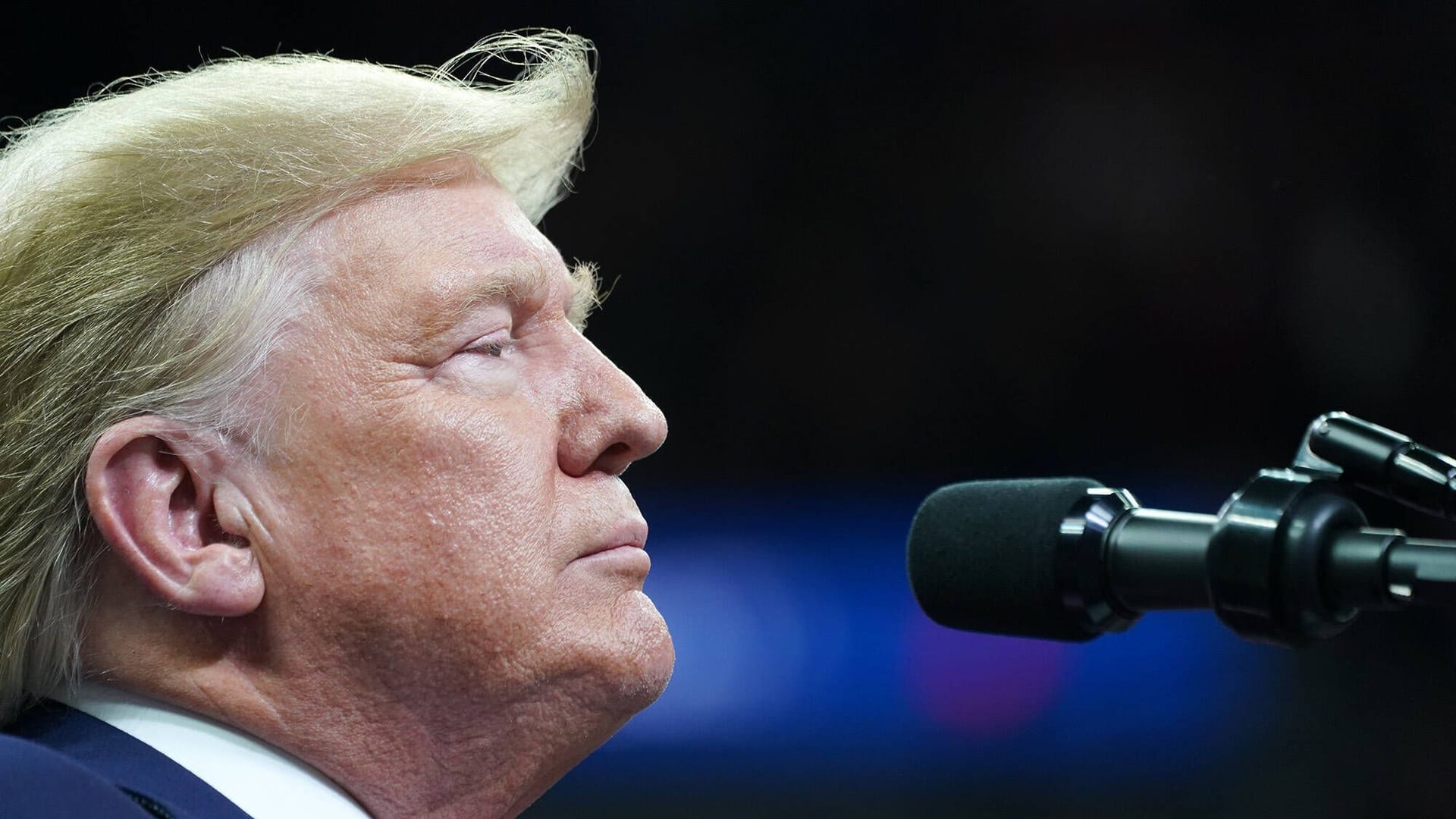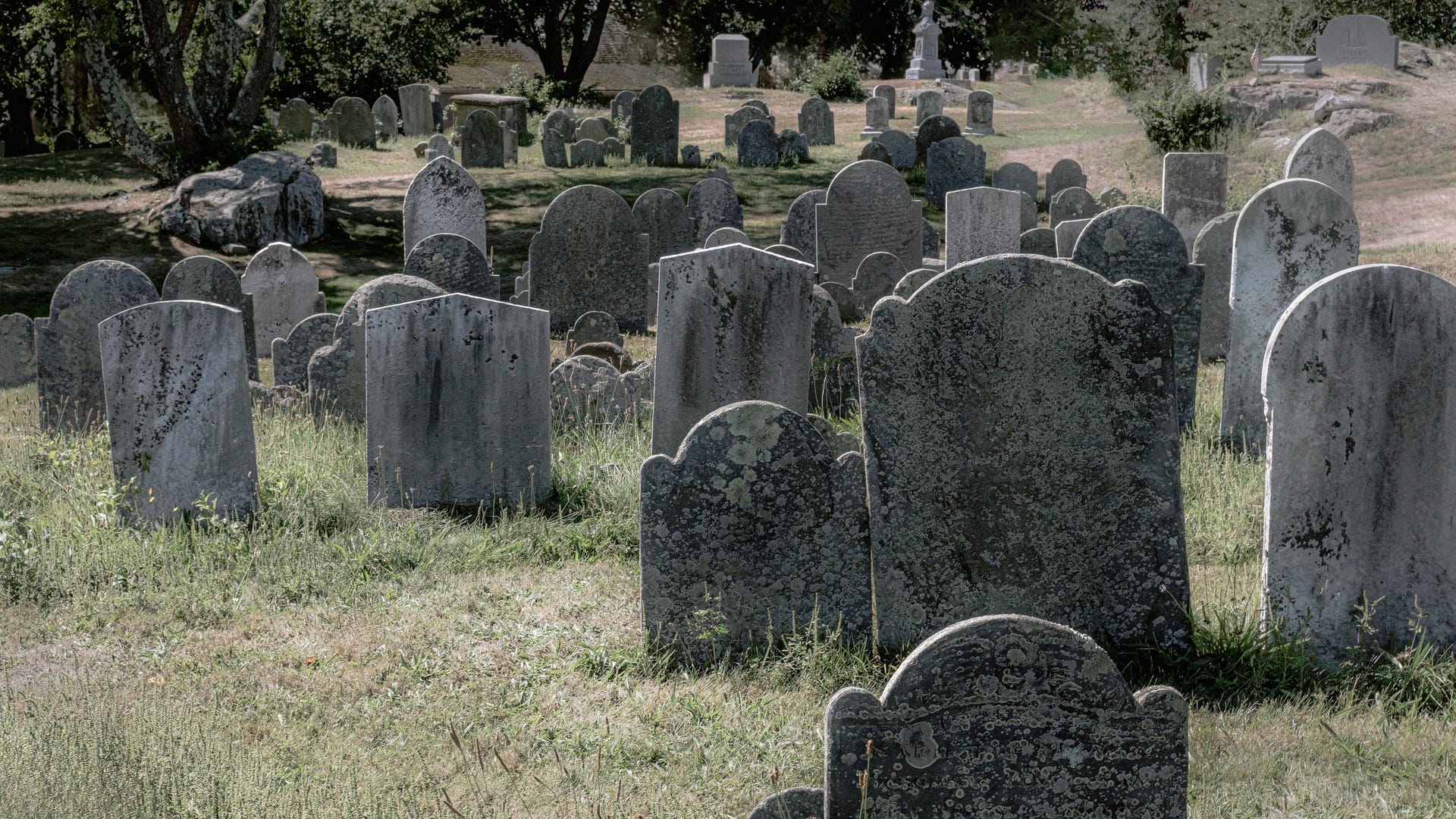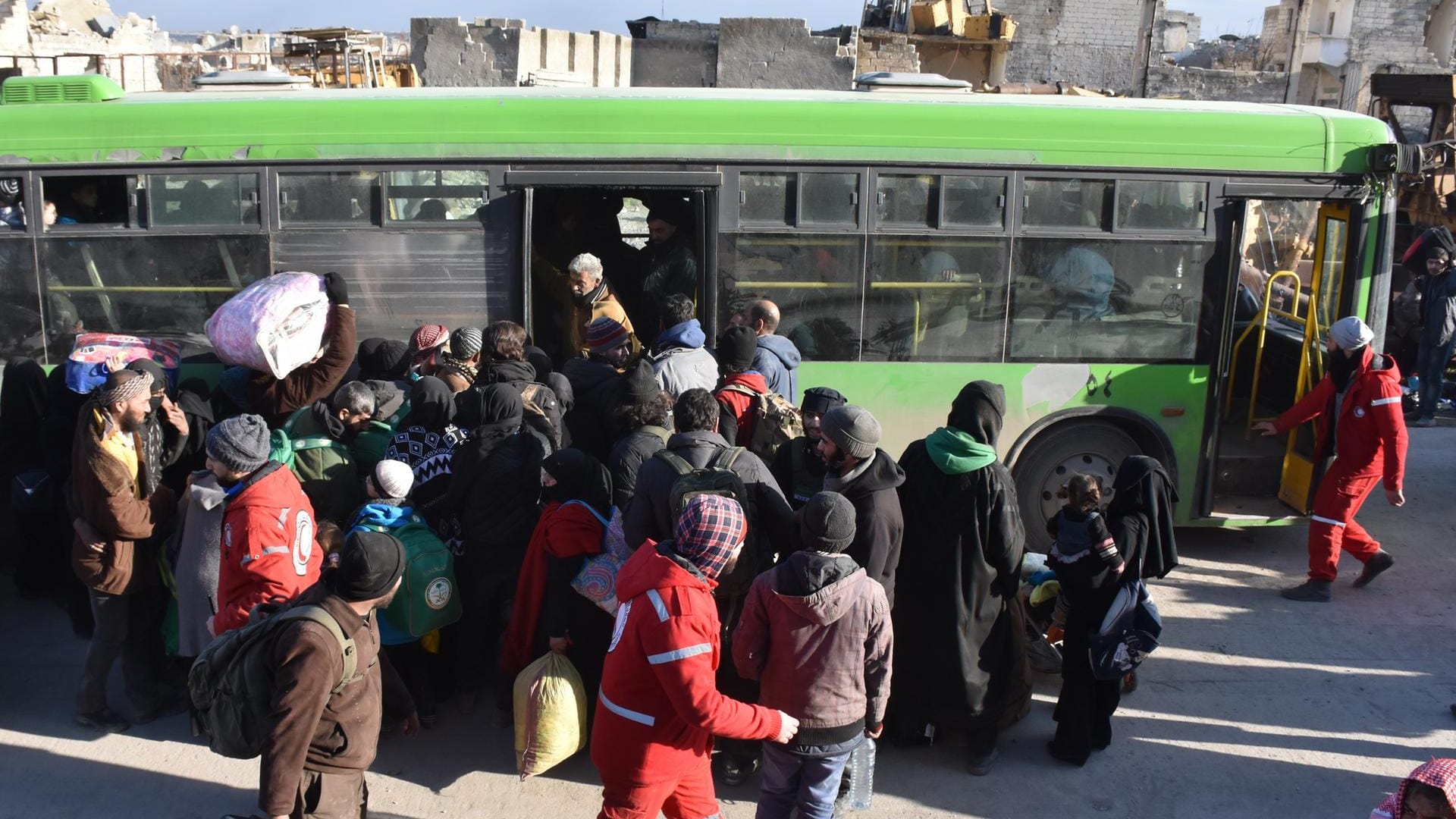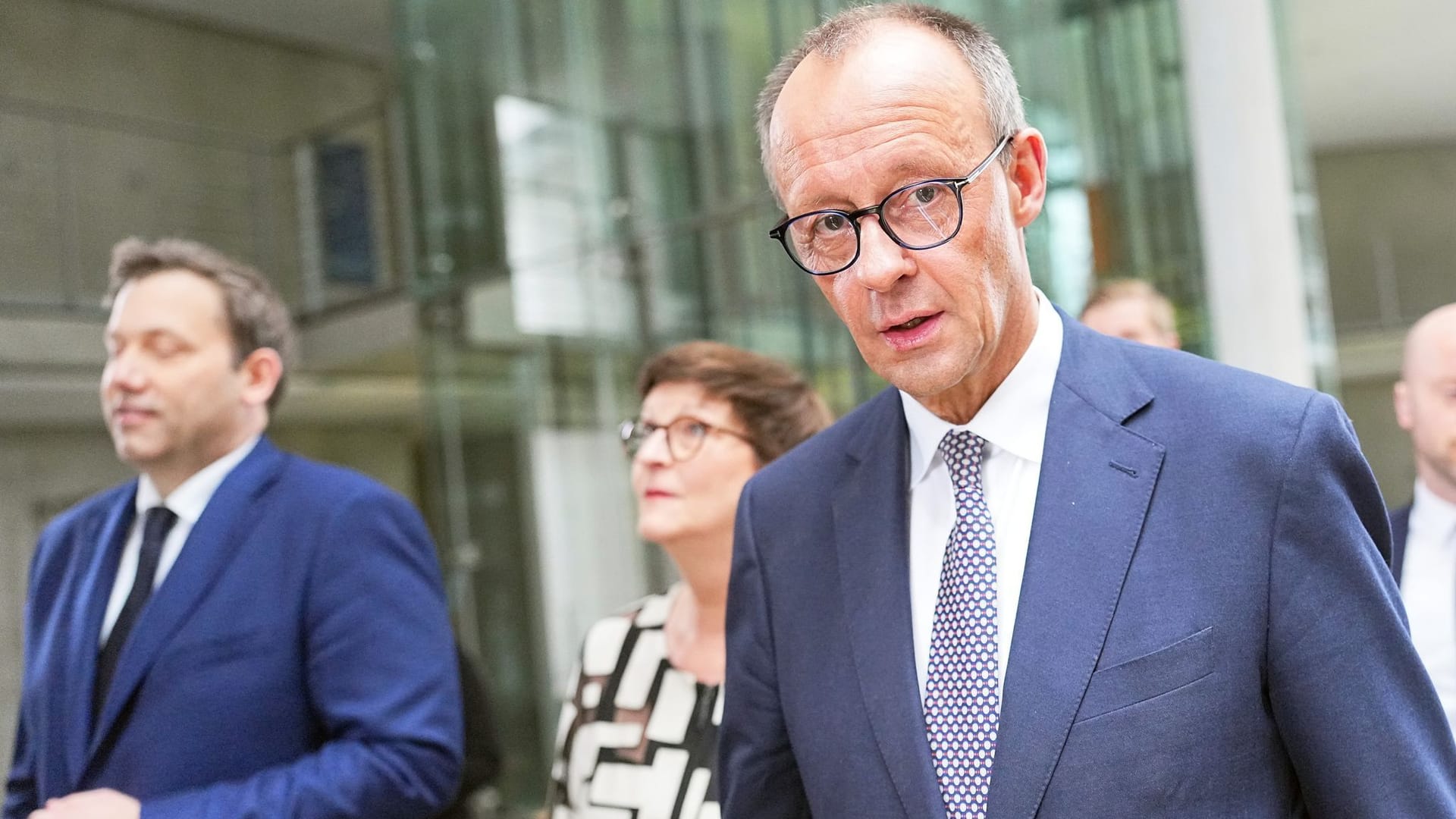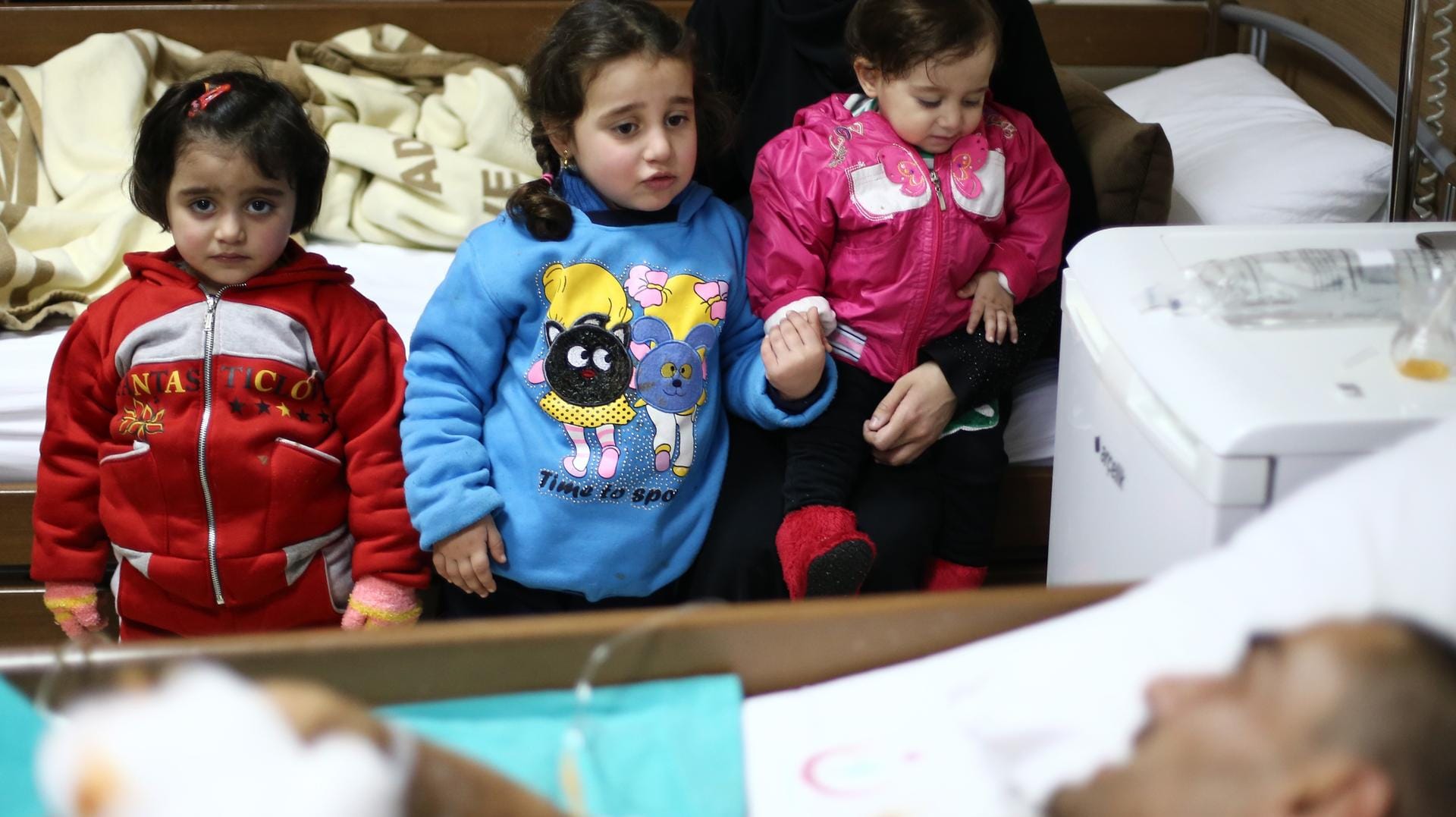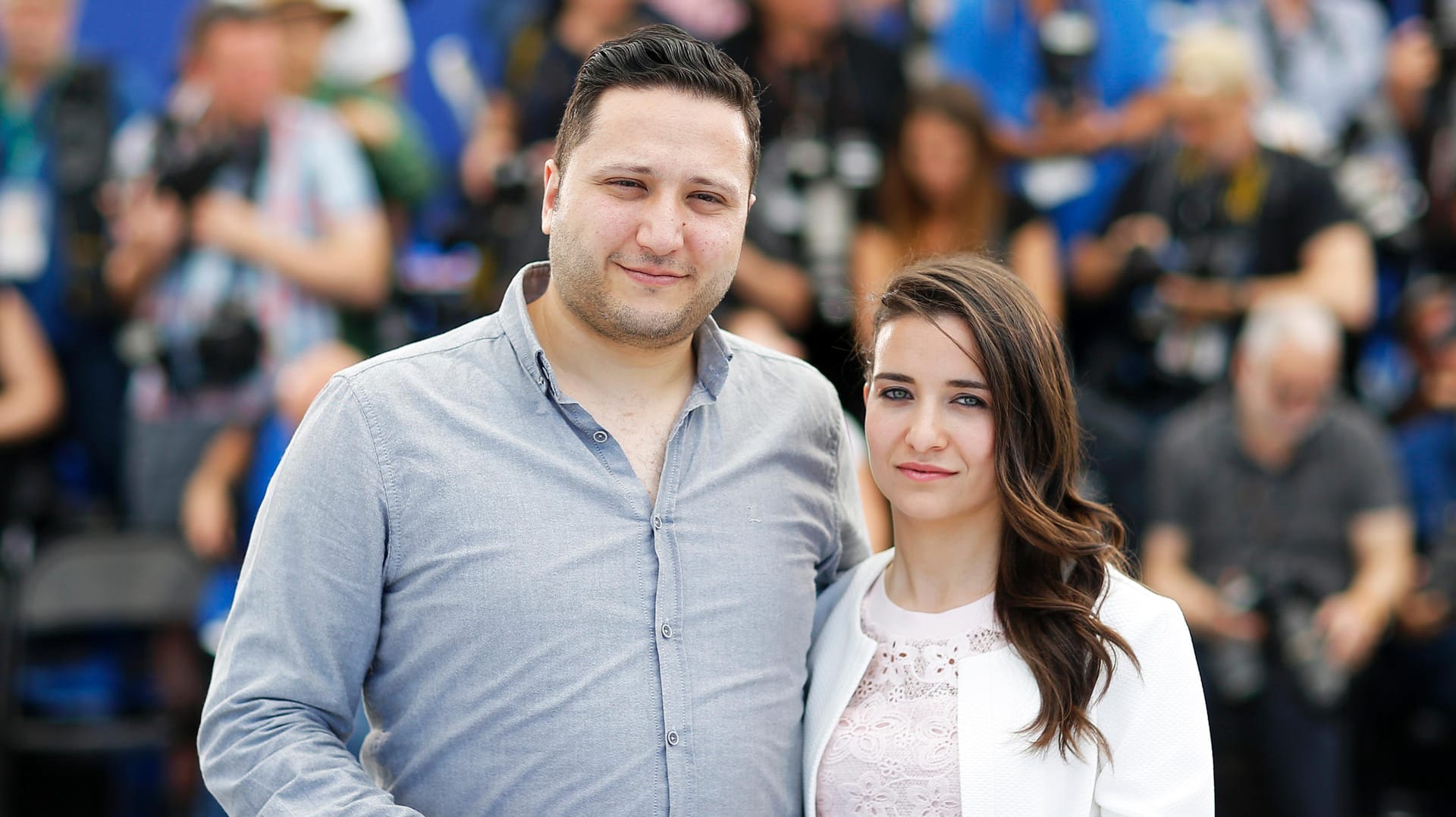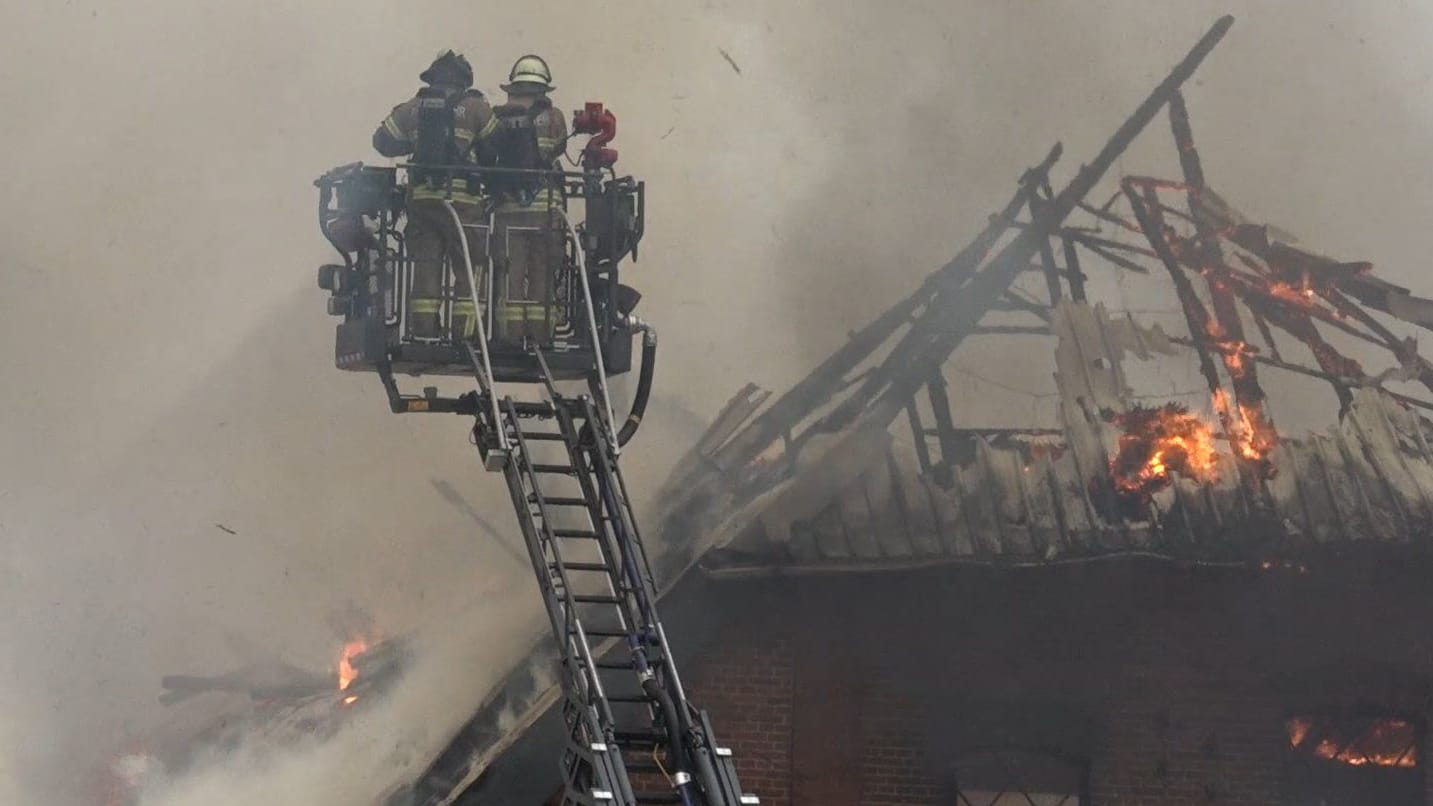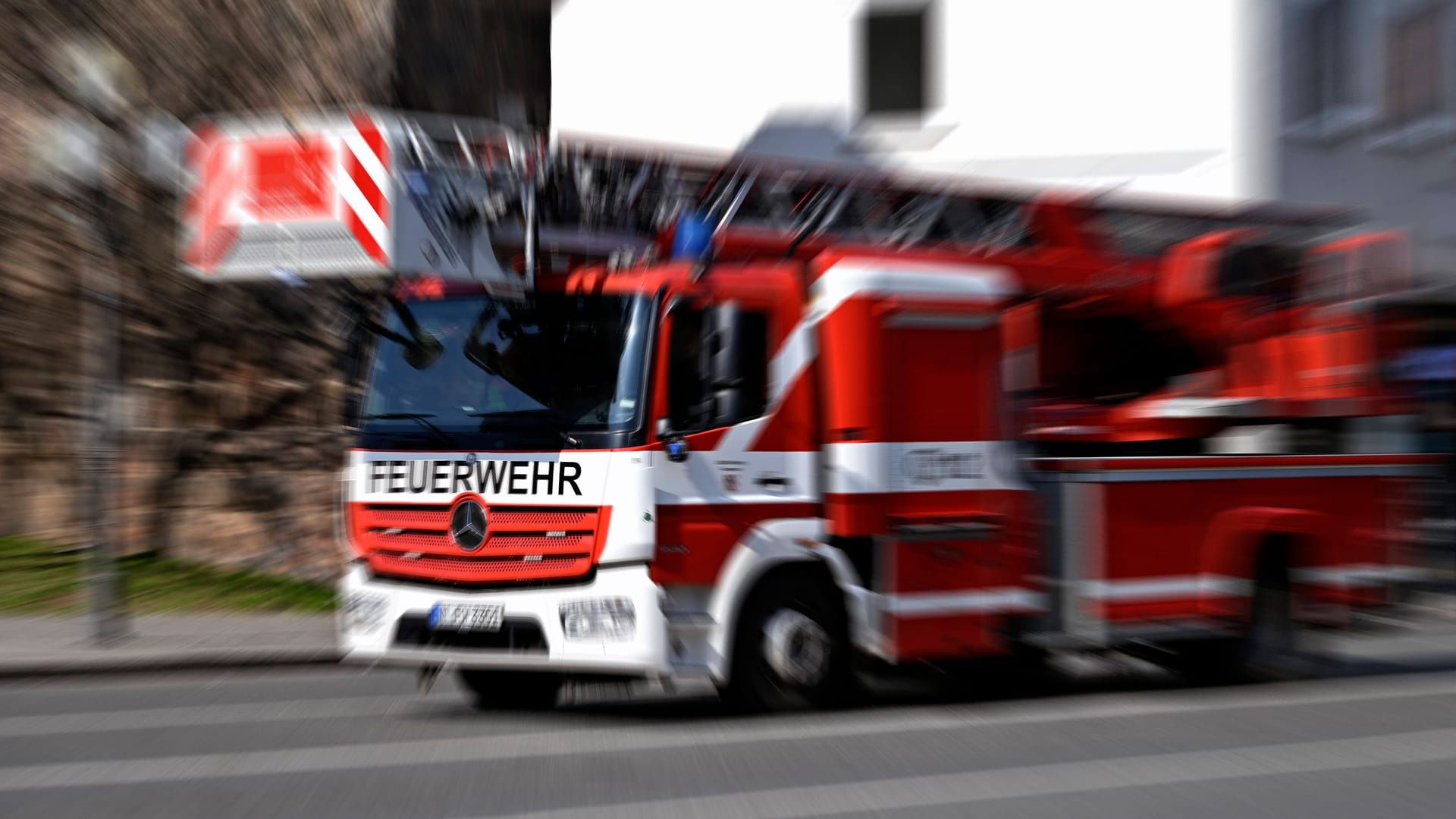
Der Gesprächspartner muss auf jede unserer Fragen antworten. Anschließend bekommt er seine Antworten vorgelegt und kann sie autorisieren.
Zum journalistischen Leitbild von t-online.Children in civil war Syrian Filmmaker: "The day we left Aleppo, I lost hope"
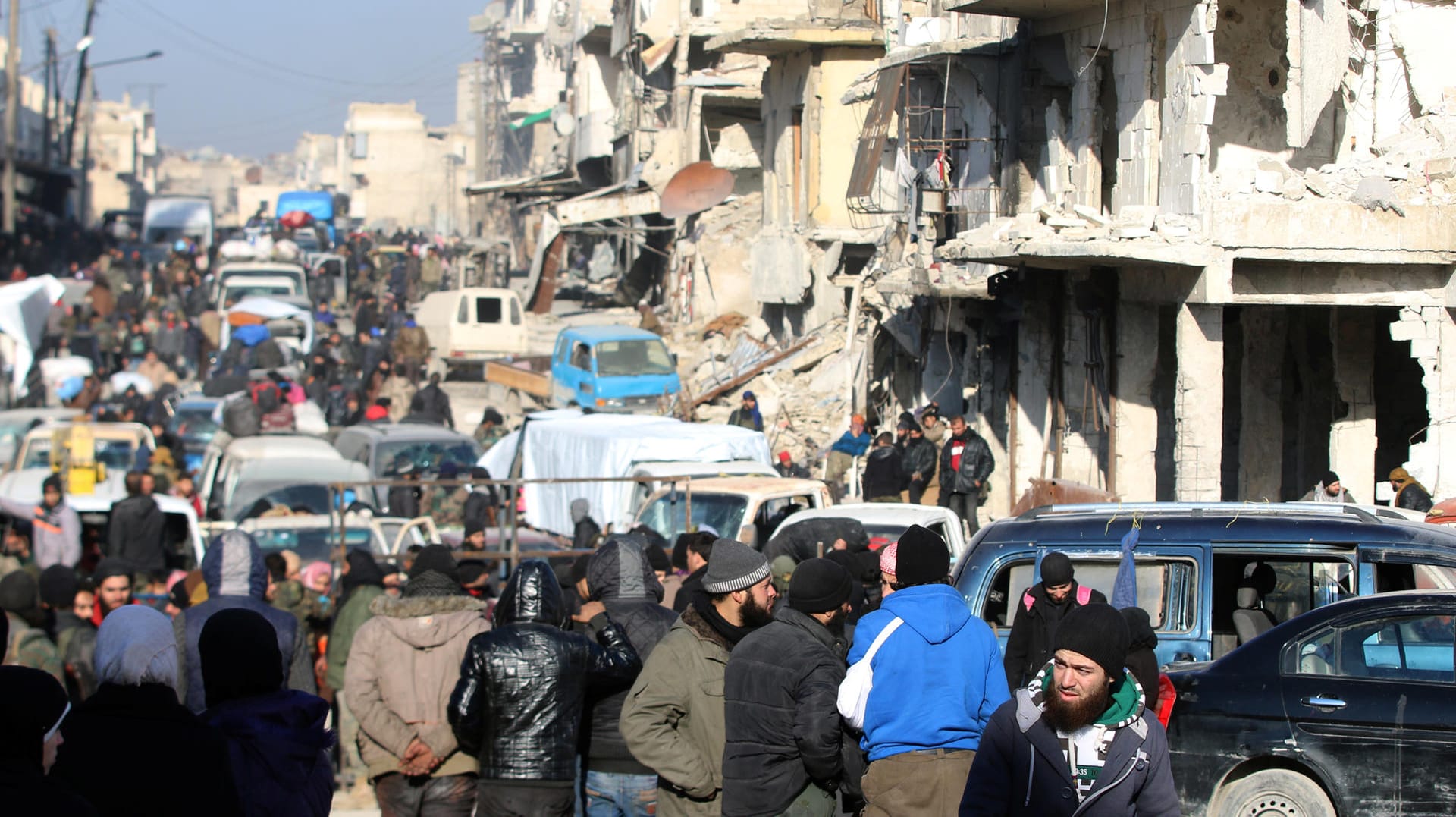

Citizen journalist Waad is pregnant. Her daughter will be born into the Syrian civil war. The film "For Sama" tells their story – and reflects the lives of many other families in Syria.
Sama is lying in her parents' bed in Aleppo. The camera focuses on her face. She is a cute baby, mostly laughing with her gray-green eyes. When a bomb explodes nearby, she remains quiet. "Sama" was just born and her parents named her "heaven" in the Arabic language. But already, she seems to understand that not only good things come from above.
- Lost in translation? Click here to read the interview in German.
When Sama was born in Aleppo, it rained bombs, missiles, and bullets almost every day. The documentary "For Sama" shows the disastrous consequences of the Syrian civil war. Director Waad al Kateab filmed everyday life in the city of Aleppo for five years. She spoke to t-online.de about it. Her film will be screened on Wednesday at the Human Rights Film Festival in Berlin.
About the Human Rights Film Festival
The Human Rights Film Festival started in Berlin on Wednesday. Until 25th September, films about human rights will be screened at several cinemas across the German capital. The festival was organized by "Save the Children", "Aktion gegen den Hunger" and "Flüchtlingshilfe Deutschland" (NRC).
The story of a strong family
Waad al Kateab tells the story of her daughter Sama. She was born on the 13th of December 2015 in Aleppo. For the entire first year of her life, Sama lived in a besieged zone.
Her mother Waad worked in Aleppo as a journalist, and her father Hamza was a doctor. The hospital he was working for was situated in a rebel-owned, besieged area. The regime's troops edged in closer and closer by December 2016.
t-online.de spoke to Waad al Kateab, the producer of the film "For Sama".
t-online.de: The film isn't easy to watch. Children die in the hospital, people suffer, and bombs explode. You still named this film after your daughter. Why did you dedicate this film to her?
Waad al Kateab: The film is called "For Sama" – and it is a love letter for my daughter – to explain what happened to us in Syria and why we decided to stay. But the film is also a symbol for all the children of Syria. This generation was born into war. I just felt that we needed something to show to them, to save and protect them. They have to know how normal people have seen these five years of change. The film is also for the outside world so that they understand what we went through.
How many children died in Syria?
Since the beginning of the civil war in 2011, schools and civil houses are also being attacked. Last year, more than 1,000 children died in Syria, according to the UN. More than 2.5 million children are estimated to be living in exile. Last week, a report by the UN Commission of Inquiry on Syria found US, Syrian and Russian forces could be held responsible for war crimes.
Despite the war, you decided to stay in Syria, even after you realized you were pregnant. Why did you do this?
Waad al Kateab: First of all, we lived with these people in Aleppo for five years. It's our home, and we are Syrians. For us, it's our duty to stay and fight for freedom, for a better future.
It was also for my daughter Sama. When I was pregnant, and after she was born, I had even more reasons to fight for a better future. I knew back then that I wanted my daughter to grow up in a safe place with freedom, dignity, and justice. And I wanted her to grow up where we belong.
Another point was that Hamza is a doctor. We knew how much people needed doctors there. We knew that one doctor could make a big difference. Some doctors were treating thousands of patients a month. And it was also about my role: As a journalist, I felt it was important to report to the outside world from Aleppo. I’ve tried to do what I had to do in this situation.
Your video footage of Aleppo shows a bomb hit the hospital after Sama was born. She was still a baby, yet in the scene, she didn’t cry.
Waad al Kateab: We, as adults, were shocked when there was a close attack. But Sama was so quiet sometimes as if she understood and she knew that she shouldn’t panic now. It was so strange. You couldn't know what she was thinking because she couldn’t express herself.
About the evacuation of east Aleppo (2016)
In December 2016, the Syrian government agreed to evacuate rebel fighters and civilians living in besieged east Aleppo. Tens of thousands of people were put on buses and sent elsewhere in the country. The injured were saved first.
You, your husband and your daughter were among the last citizens to leave Aleppo. What happened to Sama after you left Aleppo?
Waad al Kateab: At the beginning, she had problems with sleeping. Sometimes she woke up and was screaming, not really crying. She wasn't able to tell us whether it was a nightmare or emotions or what. The doctors told us that usually, children under two years have memories that can turn into nightmares. You can’t really solve this until they grow up and speak. So we made a list of things the doctor had advised us to do. Now, she is much better.
On the other hand, you can see that Sama is such a practical girl. She has done it all by herself ever since she was young. She has strong social skills. All in all, she acts much, much older than she is. Her younger sister Taima, who was born in Turkey, is much different in everything.
- See Pictures: Children in Syria
Did you ever lose hope that things in Syria will improve?
Waad al Kateab: I don’t regret what happened, even though we lost many friends. But sometimes I feel that we were so naïve when we thought things would improve in Syria with the revolution. Until we had to leave Aleppo, I had all the hope that something would change and that the world would not let this happen. I thought that everything we went through wouldn't be for nothing.
But the day we left Aleppo, and we saw how everybody was displaced and how the Russian and Syrian regimes took over, I lost much hope. However, even today, I still have some hope that something will change. Maybe I lost all my faith in the government, but I still have a lot of hope in the people. And I see the reactions of people to my film. I see that they are desperate to help the people.
Some people in western countries claim Syria would be a safe country now. What do you answer?
Waad al Kateab: There are many things I would like to tell these people: If you don’t want refugees, solve the problem. Solve the problem with Assad's crimes in Syria instead of blaming the refugees. The war is not over. Just look at the destruction there. How many refugees are living around the world?
I would ask everyone to watch the film and go through a journey in one hour and a half to understand what we were going through. I would ask them to understand how Syrians became refugees. Syria will not be safe as long as the Assad regime is in control.
Who is Waad al Kateab?
Waad al Kateab (28) studied at Aleppo University. She taught herself how to film and was trained as a citizen journalist by a number of NGOs and later by Deutsche Welle Academy. She is a regular contributor to “Channel 4 News” in the UK. Her documentary “For Sama” (2019) has received the Golden Eye award at the “Festival de Cannes” in 2019.
The bombing of hospitals still hasn't stopped. The UN can’t stop it. You did one screening there, to show them your evidence.
Waad al Kateab: The main part of our campaign around the film is saying: Stop bombing hospitals. So, we did this screening at the UN to show them what we were going through and what people in Idlib are still going through right now. We’ve given them that as evidence. Unfortunately, they can’t say who is bombing the hospitals, and they are using a passive stance.
Attacks on hospitals in Syria
This graph from Physicians for Human Rights illustrates how many medical institutions in Syria were attacked since March 2011. From March 2011 through September 2019, Physicians for Human Rights corroborated 583 attacks on 350 separate facilities.
Diese Übersicht zeigt die Angriffe auf Krankenhäuser.
Do you have an idea why hospitals are targeted so often?
Waad al Kateab: They don’t want people to live without them. So, they make life unacceptable out of the regime-controlled sector. All the time they were attacking hospitals, they were attacking bakeries, they were attacking white helmets, schools. More often than attacking military groups and fighters. It’s just part of their crimes against the Syrian people.
I also blame western countries like GB, the US, Germany, France, and everyone who speaks about freedom, dignity, accountability, and justice. They have abandoned the Syrian people while we were fighting for freedom. I hope we will have more support in the future.
Do you miss Aleppo? Is there a way for you to go back to Syria?
Yes, I miss Aleppo very much. But going back is not an option. We knew people who were with us in Aleppo, and they tried to escape to the regime area. Among them was one of the guards of the hospital. He disappeared for one year, and after this, they called his family to take his body. He was killed under torture. You can’t trust the regime. Going back is dangerous.
I want to say this on behalf of the six million refugees around the world. We are all living for the day that we can return to Syria. But that will only happen if we see accountability and justice. When that happens, we will start our new life in our country.
Your daughter Sama is now three years and ten months old. When will you show the film to her?
Honestly, I don’t know. This generation is so open to technology, Social Media, and Youtube. I don’t know if I can decide this or if she will watch it by herself. She already knows that there is a film for her, that’s called “For Sama”. But she doesn’t know exactly what the film is about.
Thank you for this interview, Waad al Kateab.
You are welcome. I hope we will all meet in Syria one day – under better circumstances.
Premiere at the Human Rights Film Festival in Berlin
Waad al Kateabs "For Sama" will be screened in Berlin from Wednesday on. The Human Rights Film Festival honors films that address the topics of human rights and social injustice.
The official German trailer of "Für Sama" was published exclusively at t-online.de, publisher "filmperlen" provided the German version of the film. The documentary of Waad al Kateab und Edward Watts will be screened in German cinemas in the first quarter of 2020.
- Eigene Recherche
- Film-Aktion gegen Angriffe auf Krankenhäuser in Syrien
- "Für Sama" beim Human Rights Film Festival Berlin
- Bundeszentrale für politische Bildung & "Arte": Die Ursprünge der Syrien-Krise im Video erklärt
- "Physicians for Human Rights": Eight Years of Devastation and Destruction of the Health System (eng.)
- "Channel4 News": Inside Aleppo - The children of Aleppo (eng.)
Quellen anzeigen













